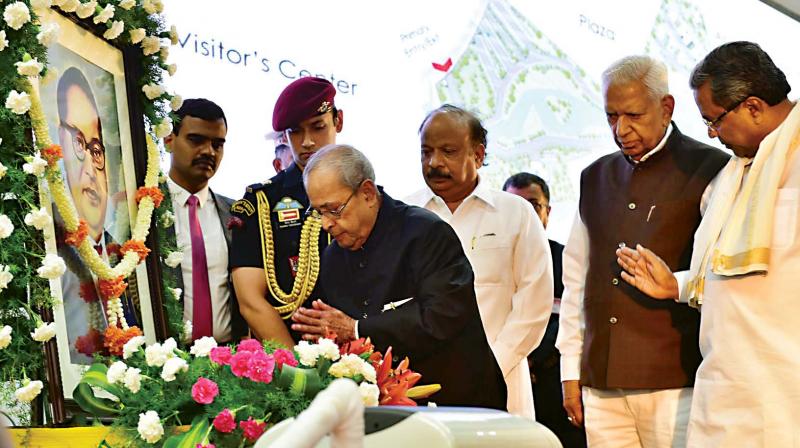We need to ignite young minds: President Pranab Mukherjee
President was unhappy with the lack of a proper environment to nurture talent in the country.

Bengaluru: Stressing the importance of quality education, President Pranab Mukherjee on Friday hoped that the Bengaluru Dr B R Ambedkar School of Economics would reach the heights of the Nalanda, Takshashila and Vikramshila universities of old and attract scholars and students from different parts of the world.
Speaking after laying the foundation stone of the institute, he said its establishment in Bengaluru was a feather in the cap of the city, which was a hub of education, information technology, science and industry. He also congratulated the government of Karnataka for establishing a skill development university as today youth lacked the skills required by their employers and around 500 million people were expected to enter the job market by 2022.
Observing that every year Indian students made a beeline for the USA, Australia, New Zealand and United Kingdom and most IIT graduates were placed in high posts overseas, the President was unhappy with the lack of a proper environment to nurture talent in the country.
He recalled that four persons of Indian origin, Amartya Sen, Kailash Satyarti, Subramanyam Chandrashekar and Venkatraman Ramakrishnan, who pursued their higher education abroad, had bagged Nobel prizes. "I urge all stakeholders like state governments and managers of schools of economics to identify talent and nurture it. There is no dearth of dedicated teachers, but we need to ignite young minds. Knowledge, which is the basic foundation of human activity, must help in leading the way from darkness to light. International agencies like UNDP and the World Bank, which come out with annual reports on GDP and GNP, are now also coming with out with reports on Gross National Happiness, which is as important a factor in development," he added.
Governor Vajubai Vala regretted that unlike Dr Ambedkar, who got his doctorate in Economics from the London School of Economics and came back to India to work not for the rich and elite but to uplift Dalits and the oppressed classes, Indian youth today studied in the country but preferred to work abroad.

